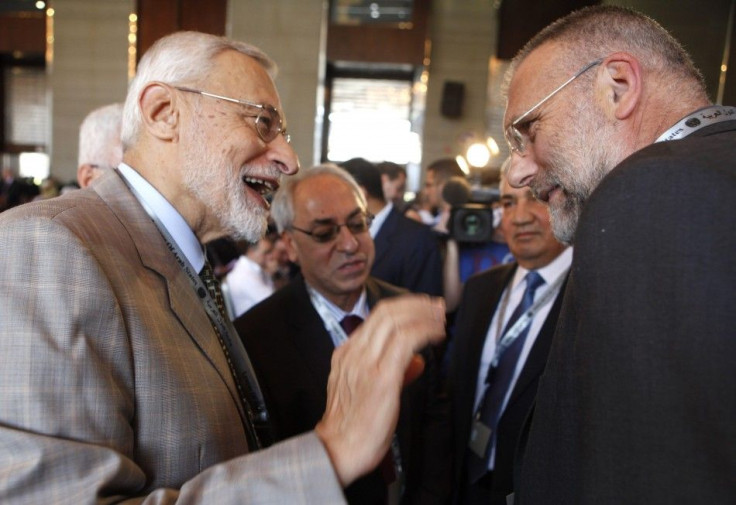Turks Say 85 Syrian Soldiers, Including General, Defect And Cross Border

Eighty-five Syrian soldiers, including one general and at least 14 other officers, fled into southern Turkey’s Hatay Province Monday, Turkish news agencies reported. It was one of the largest mass military defections since the Syrian conflict began 16 months ago.
The New York Times reported that a Turkish broadcaster, T.R.T. Haber, said the defectors entered the border town of Reyhanli as part of a group of 293 refugees “fleeing atrocities in Syria.” It said the defectors were placed in the Apaydin refugee camp, which houses some 2,000 Syrian soldiers who have revolted against President Bashar al-Assad's regime. The civilians in the group were sent to another camp on the border.
Turkey’s Anatolia news agency said the 14 lower-ranking officers included a colonel and a lieutenant colonel.
Turkey is now allowing the insurgent Free Syrian Army to operate from bases in its territory and is housing more than 35,000 Syrian civilians who have sought refuge from the conflict.
Meanwhile Monday, Syrian government helicopters bombarded a Damascus suburb as the conflict closed in on the capital, Reuters reported.
Syrian government forces have launched an assault on Douma, a city on the edge of Damascus where they stormed a rebel stronghold two days ago, leaving bodies rotting in the streets of the nearly abandoned town.
The bombardment of Douma continued today using helicopters. Some activists entered the city today and they saw at least seven decaying bodies in the streets under the sun. One man had been executed inside his house, said Mohamed Doumany, an activist who fled the city two days ago and was now nearby.
There is huge destruction in the city, which is almost empty. Only a few of its people remain inside, he told Reuters by Skype.
Turkey also said Monday it had scrambled six F-16 fighters in response to three incidents of Syrian helicopters approaching the border. Turkey also scrambled fighters on Saturday and has moved guns and soldiers toward the frontier.
Turkish Foreign Minister Ahmet Davutoglu told Syrian opposition figures gathered in Cairo that their struggle to unseat Assad would end in victory.
The Assad regime's guns, tanks, weapons have no meaning in the face of the will of the Syrian people. Sooner or later the will of the Syrian people shall reign supreme. And you will lead this process, he said.
At the same conference Arab League Secretary-General Nabil Elaraby said: There is an opportunity before the conference of Syrian opposition today that must be seized, and I say and repeat that this opportunity must not be wasted under any circumstance.
The sacrifices of the Syrian people are bigger than us and more valuable than any narrow differences or factional disputes, he said, the Associated Press reported.
The Cairo conference assembled disparate opposition groups -- including the Syrian National Council and the National Coordination Body for Democratic Change in Syria -- to try to form united front to represent them, as well as to work out a transition plan for how to end to the conflict.
But the main rebel group fighting Syrian government forces on the ground, the Free Syrian Army, was not represented at the talks. Faiz Amru, a member of the Joint Military Command, which is affiliated with the FSA, said the Cairo meeting was purely political, so rebels were not invited.
Turkish Prime Minister Tayyip Erdogan, a former ally of Assad who has turned decisively against him, says Turkish military rules of engagement have been changed and any Syrian forces approaching the border and deemed threatening will be targeted.
United Nations human rights chief Navi Pillay decried the flow of weapons to both sides. The ongoing provision of arms to the Syrian government and to its opponents feeds additional violence, she said in the text of remarks made to the Security Council, obtained by Reuters. Any further militarization of the conflict must be avoided at all costs.
Pillay did not say where the weapons were coming from, though Russia and Iran are the government's main suppliers. U.N. diplomats say Qatar and Saudi Arabia have been transferring arms to the increasingly militarized opposition while the United States says it is supplying only non lethal aid to the rebels.
© Copyright IBTimes 2025. All rights reserved.





















